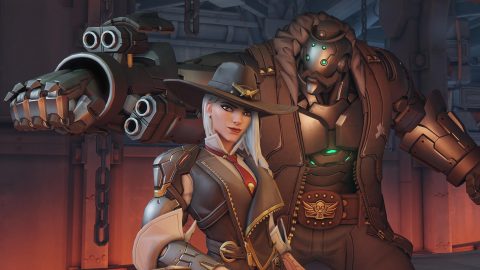
Lovelyz were never hugely popular – at least not in the way newer acts like IVE and NewJeans are dominating the airwaves nowadays – but they certainly had a solid foothold in the K-pop industry. Over seven years, the eight-member group released a slew of records, spawning hits such as ‘Ah-Choo’ and Destiny’, and built a dedicated fanbase through their vocal abilities, cheery girl-next-door concepts and generally pristine reputation.
All that came to an end in 2021, when seven of its members opted to leave their longtime label Woollim Entertainment. Although Lovelyz have parted ways – but perhaps not disbanded, at least not the “official” sense of the word – with its members all focused on solo careers, its clear former lead vocalist Ryu Su-jeong still holds a lot of affection for her old life.
“This was almost 10 years back, and during that time, mental health conversations weren’t as common as they are now”
“I didn’t realise it back then, but thinking back to it now, it was just a very beautiful experience,” the 25-year-old tells NME over Zoom from South Korea, softening visibly when speaking about her former bandmates. “I love that I went through that experience with them, being performers together.”
Su-jeong has certainly come a long way since her debut in 2014, when she was on the cusp of turning 17. Last year, she established her own independent label, called House of Dreams, and just very recently released her first full-length album, ‘Archive of Emotions’ – an intimate, lo-fi glimpse into her new era. Ahead of her first-ever solo concert this weekend, she’s opening up about the road that has led her here.

Inspired by groups like Girls’ Generation and the Wonder Girls, Su-jeong had her heart set on stardom since she was in middle school. After two years of auditioning for different agencies, she finally joined Woollim Entertainment in 2012. “There were about seventeen of us when we first started,” she reminisces. “We had a survival competition of sorts every month, and two years later, only eight of us actually debuted.”
“Looking back, the training was strict but it kept us focused on our activities,” muses Su-jeong, whose grueling practice schedule averaged 12 hours a day. Life after their debut was equally as demanding, Su-jeong adds while gesturing animatedly as she describes a typical cycle: “We would be promoting one album, and that was hectic, and we would also be working on the next album at the same time.”
Despite their busy schedules and the intense pressure to succeed, the members of Lovelyz were afforded little by way of mental health support. “This was almost 10 years back, and during that time, mental health conversations weren’t as common as they are now,” explains Su-jeong, who attributes her endurance at the time to her sense of ambition and the support of her family.
“Celebrity is such a public thing, and people have so much access to me that sometimes I need to tell myself, ‘This is just a job’.”
“My parents are music enthusiasts, and my mom is a great singer,” she beams. “They lived far away, so I could only see them on big holidays.” Trainees were not allowed to have phones, and their bags would get routinely searched to make sure they were sticking to the rule. “They would dump all my things out on a tray like they do at airports,” Su-jeong recalls, and even laughs at the thought of it. Undeterred by the scrutiny, though, she would sometimes sneak out to use public payphones to talk to her parents. “It was like Mission Impossible.”
Although she is now somewhat removed from the rigour of idol life, parts of it have, for better or worse, stayed with Su-jeong. She recalls how she and her fellow Lovelyz members were given “desirable” goal weights – hers was 47kg – and were weighed regularly to make sure they were within range. Every visit to the convenience store was supervised, and every purchase checked. “It affects different people differently,” she begins, clearly hesitant. “Some people came out perfectly fine, but I did binge eat after I left my role as idol.”
“I think in the last decade, things have gotten better in terms of artists being given their personal space,” she says, reflecting on how the industry is slowly moving towards giving K-pop idols more personal liberties and mental health support. “I’m glad to see that my juniors have more freedom.”

During her time in the industry, she also found it difficult to separate her public life from her personal life. Although Lovelyz fans were largely respectful of the members’ private lives (a sadly rare occurrence with many K-pop fandoms), Su-jeong shares that there were times when she had to remind herself that this did not define her completely. “Celebrity is such a public thing, and people have so much access to me that sometimes I need to tell myself, ‘This is just a job’.”
Lately, it certainly seems as if Su-jeong has rediscovered her joy in being a musician. “We’re living in a non-fantasy / We’re just living in reality,” she croons on ‘Non-Fantasy’, her current favourite track from ‘Archive of Emotions’, which is her first solo release as an independent artist. “I was involved in writing and composing all the songs on the album, so my favourite song changes all the time,” she laughs.
In a way, ‘Archive of Emotions’ is a celebration of the years she spent in the industry. The album’s intimate, mellow concept is quite the contrast to the girl-next-door tracks Lovelyz excelled at during their heyday. “At the time, the innocent image fit our members very well,” she says. “It’s not like I never had my own thoughts [about the music we were releasing], but I was very focused on the group.”
“In a group, it’s not really good for you to have personal creative ideas because if you let one person do it, and the other person doesn’t get to do it, they might feel limited or insecure.” She credits this group-based focus to strengthening their mutual relationships through the years, adding that she knew that one day she would be able to truly express herself with her own words.
“[This] project was so deeply personal to me. I wanted to talk about things that could resonate to people my age,” Su-jeong adds. “I don’t think much has changed from Lovelyz’s Su-jeong to now. But I do know that in this album, I am completely myself.”
Ryu Su-jeong’s new album ‘Archive of Emotions’ is out now
The post Ryu Su-jeong: “Sometimes I need to tell myself, ‘This is just a job’” appeared first on NME.







